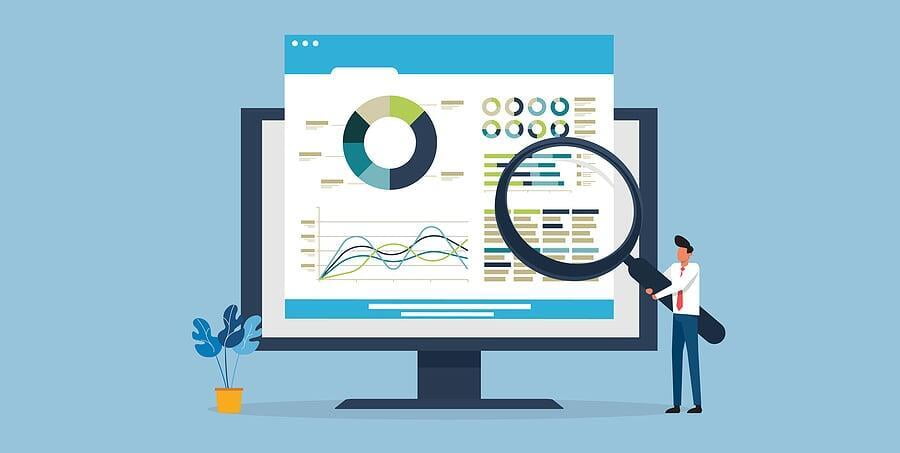
You know the ins and outs of your facility better than anyone, but you may need a little help orchestrating the logistics so it performs its best. Industrial and commercial energy procurement can make all the difference for on-site experts seeking to boost efficiency from every angle. Here's our comprehensive guide on energy procurement strategies and tips that any facility manager can implement.
Should You Choose Long-Term or Short-Term Energy Procurement Services?
Wherever you're from, you're bound to see different utility rates. Pennsylvania alone boasts rates that are 10% less than the national average, in part due to a plethora of competitive energy suppliers in a deregulated market. Broadly, facility managers can choose between short-term and long-term energy procurement. So what's the difference?
Short-term energy procurement services rest on a contract that spans 3–6 months or restarts monthly.
Pros:
You can use short-term contracts to avoid market highs.
If your facility is new and you don't have historical usage data, a short-term contract can help you acquire that.
If you expect a transfer of business ownership, a short-term contract can be beneficial. Contracts typically don't transfer along with the ownership.
Cons:
Continual contract renewal can be time consuming.
You can easily miss out on market lows.
Put simply, short-term contracts are much more likely to mean overpayment for actual energy usage, thus limiting potential cost savings.
Long-term energy procurement services work around a longer contract, typically 12–36 months long.
Pros:
Predictability in pricing makes for easier budget allocation.
Your average cost will be low (as long as you work with the right energy broker).
No contract fumbling with RFP's for your staff.
Longer contracts favor renewable energy procurement.
Cons:
You won't hit the lowest dips in the market when they come.
If you transfer business ownership, the contract likely won't move with it.
So which is better? In most cases, a long-term contract is the answer. However, short-term contracts work great for people with the time, enthusiasm and funds to weather the market's fluctuations.

3 Tips for Strategic Energy Purchasing
Energy purchasing is best served strategically. (What else are professional energy consultants for?) If your goal is to minimize long-term energy costs, get the best bang for your buck by:
Timing the market.
Because energy is a commodity, prices move in waves. Think of the stock market — the highs and lows can be unpredictable at times, but that doesn't mean you can't find patterns to reap the greatest reward.
To minimize your overhead energy spend in the long run, you're going to need to continuously monitor these fluctuations. Not everyone has the time for this (nor the knowhow to read the market right), which is precisely why energy procurement consultants come in handy.
Managing your load.
Actually changing when you use energy and how long you use it for can make all the difference. It's like a puzzle. Curtail your load for a few hours at a time and conserve what you saved for other times.
Structuring your contract right.
Not all contracts are created equal. Because of the complex nature of commercial energy procurement, you can build your contract in different ways. Fixed rates and structured rates are the main options, with structured rates offering a couple of setups. Let's dig into the differences...

Pricing Energy Procurement Services: Fixed VS Structured Rates
There are a few main ways to price your commercial energy contracts:
Fixed rates offer a set price for a specified period of time. It's a single rate per kilowatt hour that benefits companies prioritizing budget control. It's predictable and guaranteed. Under a fixed rate contract, you're protected from market increases, but you can't take advantage of market lows.
Index rates let businesses choose their energy timing or volume in real time (or a day in advance). If market prices are high, you can ride it out with index rates until the pricing is stable enough for a more fixed rate. This works great for businesses who can adjust energy usage to align with dips in pricing, but it does come with higher risk and less budget certainty.
Blended rates are a hybrid of fixed and index rates. It's based on a combination of historical usage and future energy predictions.
In the long run, your choice for how to price energy procurement services fully depends on two things: your usage and risk tolerance. Energy brokers can help you determine a pricing structure that benefits your company.
More Energy Procurement Strategies for a Smarter Facility
You're only as good as your purchasing partner. Energy purchasing is complex by nature. What's more is that energy rates fluctuate quickly, and you need to monitor the market consistently to make sure you're getting a fair deal.
Of course, you have an entire commercial or industrial facility to worry about —which makes energy procurement consultants such a valuable resource. Market comprehension, industry relationships and regulatory understanding all make up a quality purchasing partner.
Choose your goal: Cost-cutting or renewable energy sources? When it comes to energy purchasing, you need to determine what's most important for your facility, not what others tell you is important. Most often, this means determining whether you give preference to cost or renewable energy procurement.
That's not to say you can't have both, but in developing a strategy that aligns with your mission, it's imperative to define your primary goal.
Align supply and demand. An energy contract gives you your electricity or natural gas supply, so you first must determine your facility's demand flexibility. Historical usage data is your friend here.
If your facility is new, consider operating under a short-term energy contract until you've garnered a year's worth of data and can confidently assess your demand.
Don't let your contract expiration creep up on you. Because of the market's fluctuations, it's smart to plan ahead and lay your options out on the table. If you wait too long, there's a high chance you'll pay too much for your next contract.
A energy broker comes especially in handy here. When your administrators have their own set of issues to address, timely contract renewal often falls by the wayside.
When's the Best Time to Renew Your Energy Supply Contract?
Whenever you decide to renew your energy supply contract, keep these tidbits in mind:
Monitor the energy markets frequently (or have consultants do it for you). Energy market rates tend to fluctuate on a seasonal basis, but seasons aren't the only factors at play here. Market events of all kinds can make rates skyrocket or pitfall, even if only for short periods. Catching the lows can be a tedious job, but consistent monitoring really is key.
Consider (but don't rely solely on) shoulder months. Shoulder months are times when the temperature is nice enough to make use of outside air and reduce energy consumption. These typically occur in the spring (March and April) and autumn (September and October). Because of decreased demand, energy futures prices also dip. Shoulder month contract renewal is something to consider — but it's not the only factor at play.

Buying Electric Through a Reverse Auction: Pros & Cons
A reverse energy auction is typically run by a third-party ecommerce host. They send invitations to potential bidders, who they usually pre-qualify. The auction itself can be as short as 15 minutes or as long as a day. While bidding occurs, participants can see other bids, respond to them and even communicate with one another. Electricity price is a key factor, but it's not the only one.
The pros and cons associated with using a reverse auction for electricity procurement actually go hand in hand. While the pro is the potential to score a low cost, you can only acquire that potential by taking a risk. As a result, the main con is the potential to pay too much. But that's not the end of the story.
More pros: Reverse auctions can help energy buyers save money in an unbiased landscape. It's a fairly quick process and you don't need a ton of expertise to figure it out.
More cons: The seller may not even know who the buyer is, meaning no relationship is formed. This means you're changing power suppliers on a frequent basis.
A reverse energy auction is a gamble, no doubt — and whether or not you choose to partake all depends on your risk tolerance and budget flexibility.
Revenue Streams from the Grid
Did you know that you can actually gain capital from your energy procurement strategy? No, seriously.
Here are six ways you can bring in revenue from the grid:
Energy storage
With energy storage systems in place at your industrial or commercial facility, market fluctuations become an opportunity, not an adversity. When grid rates rise, you can rely on your stored energy for consumption. When grid rates dip, you can feel confident purchasing energy while actively working to store energy to use for future increases.
Backup generators
Historically, generators have been a tool for enhanced resilience in uncertain times. While that remains true, they're also an opportunity for strategic usage adjustment. Upgraded generators are an intelligent response to heightened demand. At the same time, you only have to alter your daily usage slightly — if at all.
On-premise solar
In the age of renewable energy procurement, on-site solar power can be a tactical tool for reducing overall energy cost and conserving your budget. With its renewable nature, it's also a way for you to achieve your business' sustainability goals now and in the future, making this asset a win-win for all industries.
Smart EV charging
Industrial and commercial businesses that rely on automotives for their operation are increasingly turning to electric vehicles. As the industry becomes more accessible, EV charging is only developing. You can implement smart EV chargers that continuously optimize charging times and maximum energy usage to make an EV fleet more attainable for you.
Strategic load management
Shifting how you think of energy can make a world of difference. Instead of merely constituting energy as an expense, think of it as an asset that can help you reach your goals. Actively responding to demand can not only reduce your outright costs, but it can also help you earn rewards and payments.
Energy incentives
With the help of energy management consultants, you can find regional or state-led energy incentives that fit the bill. It's not an easy map to maneuver, but one that a local expert can help you navigate. Examples include Pennsylvania energy efficiency grants and alternative fuels incentive grants.
How Commercial Energy Procurement Consultants Can Help
Throughout this comprehensive guide to industrial and commercial energy procurement, we've mentioned a few places where electricity consulting comes in handy. But what is it that really makes outsourcing to energy procurement consultants so valuable?
A energy broker can help you stay on top of market fluctuations, even when your focus is on running your company.
With the help of consultants (broker, you don't have to stay ahead of the contract curve. They'll assess the landscape for you prior to your contract expiration.
With legislative and regulatory knowledge, you'll be able to develop revenue streams in ways you never thought possible.
Your consultant is likely to have a firm network of industry relationships, something they can use to find the right energy supplier for you.
Taking into account your energy goals, risk tolerance, budget flexibility and even the nuances of your unique facility, a well-versed consultant can combine these factors for holistic and individualized energy procurement strategies.
BONUS: How Can I Meet My Companies ESG Targets In Regards To How We Purchase Energy?
- Switch to renewable energy sources. This is one of the most effective ways to reduce your company's environmental impact. There are a number of different renewable energy sources available, such as solar and wind power. You can purchase renewable energy from your utility company or from a third-party provider.
- Improve your energy efficiency. Another way to reduce your company's environmental impact is to improve your energy efficiency. This means using less energy to power your operations. There are a number of different ways to improve energy efficiency, such as installing energy-efficient lighting and appliances. You can also work with your utility company to get an energy audit of your facilities.
- Offset your carbon emissions. If you are unable to reduce your carbon emissions, you can offset them by purchasing carbon credits. Carbon credits are a way to invest in projects that reduce greenhouse gas emissions. This helps to offset the emissions from your own operations.
- Support sustainable businesses. When you purchase energy from sustainable businesses, you are helping to support the transition to a clean energy economy. There are a number of different ways to find sustainable businesses, such as searching online or asking your friends and colleagues for recommendations.
- Educate your employees. It is important to educate your employees about your company's ESG goals and how they can help to achieve them. You can do this by providing training on energy efficiency and sustainability. You can also encourage your employees to reduce their own carbon footprints by commuting to work by bike or carpooling.
By following these tips, you can help your company meet its ESG targets in regards to how it purchases energy.
FAQ
What is decentralized energy, and how can it benefit my commercial or industrial business?
Energy grids are shifting from resource-heavy power plants to decentralized systems. Benefits include localized, renewable energy that offers a sturdier, more resilient supply. As an added bonus, decentralized grids (or microgrids) reign supreme in blackouts or brownouts.
What value streams are available to my commercial or industrial business, and how can I participate?
To learn more about the specific value streams that are available to your commercial or industrial business in Pennsylvania, contact A1 Energy. We'll perform an assessment of your facility and help you determine how to bring in revenue through your energy assets.
How do I know what to look for in energy procurement consultants?
Ask yourself: Do the consultants, or energy consultants, have a firm grasp of your local landscape, including suppliers, regulations and legislation? Have they successfully worked in industrial or commercial facilities of your scope? Are they well-versed in contract strategy, one of the primary components of a successful energy procurement process?
Bottom Line
Want to know the truth about energy procurement services? It's not just the amount of energy you use, but how you allocate it to be more energy efficient. It's not just the energy price, but how you maneuver different energy contracts like a pro. It's not just the commercial energy procurement itself, but the energy advisors you employ to work alongside you. At day's end, this service has a lot of bits and pieces, but developing a facility-wide strategy can — and should — be done.
